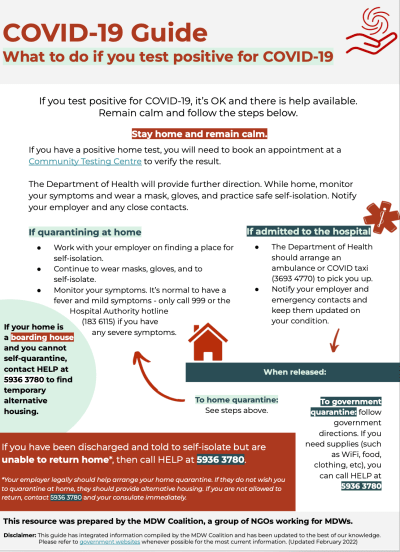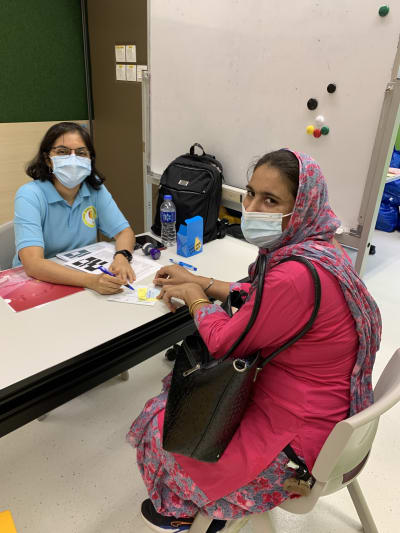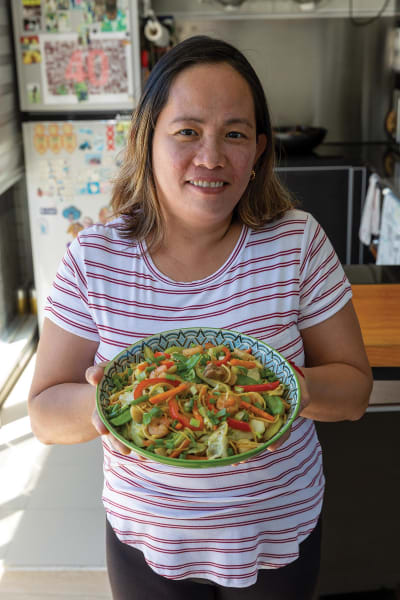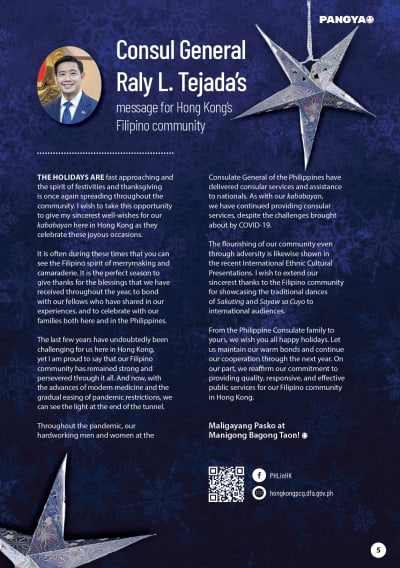In today’s fast-paced and demanding world, with a multitude of tasks always vying for our attention, feelings of stress, anxiety, and depression have become increasingly common. For migrants and refugees living away from family and loved ones, the sense of having no one to turn to can often amplify such feelings. Pangyao talks to Dr. Mike Manio, MD, MHPed, Phd in Vascular Phamacology, on how to identify such conditions and ensure you have access to the help and support that you need
Having provided healthcare to Migrant Domestic Workers (MDW) for many years,
Dr. Mike Manio has witnessed plenty of cases of stress getting out of hand and manifesting into physical symptoms. “I have seen a lot of our kababayans who have struggled with their work and other problems, and these events have led to stress,” Dr. Mike shares.
There are three types of stress: acute, subacute or episodic acute, and chronic. Understanding the difference can help with easing symptoms and finding the most appropriate treatment.
Acute stress
Acute stress occurs when an immediate event causes your heart rate and blood pressure to rise. Being involved in an accident, getting terminated by your employer, or an unexpected life crisis, are all types of acute stress.
The sense of emergency that acute stress evokes can trigger symptoms such as migraines, chest or back pain, feelings of anxiety, sadness, irritability, and even gut problems. However, these symptoms don’t usually last long, and tend to subside once the stress eases.
Subacute or episodic acute stress
Subacute or episodic acute stress is when the stress occurs more often. While the symptoms are similar to acute stress, they may be experienced on a more regular basis and start to accumulate. For example, dealing with a hostile or angry person on a regular basis can make you feel tense, anxious, or angry in anticipation of such exchanges. If left unchecked or poorly managed, episodic acute stress can contribute to serious illnesses like heart disease or clinical depression.
Chronic stress
Chronic stress can be described as a constant grind that can wear people down over months or even years. It can occur as a result of serious life problems, some of which may be fundamentally beyond our control, such as poverty, a chronic illness, or experiencing severe discrimination.
If you’re feeling overwhelmed by unrelenting demands and you don’t know how or when they will stop, you may be suffering from chronic stress. It is important to seek help and not blame yourself – blame will only grind you down further and can lead to further mental and physical problems.
“It is easy to turn to vices like alcohol, unhealthy food, or drugs when we want to self-soothe our stress,” says Dr. Mike, “That’s why it is important that we take steps to help us deal with such feelings.” Turn the page for Dr. Mike’s advice for dealing with stress.
Dr. Mike’s tips for dealing with stress
Dr. Mike Manio, MD, MHPed, Phd in Vascular Phamacology, is the founder of Domestic Workers Empowerment Programme (DWEP) and is currently a faculty member at HKU Medicine. Originally from the Philippines, he is currently based in Hong Kong
A trusted circle of friends
Having a friend to lean on in times of need does wonders for unloading stress. Talking through your problems, even if it doesn’t lead to a solution, helps to ease the emotional burden. This also applies in reverse; if you have a friend who needs a sympathetic ear, remember to listen patiently and avoid judgement
Keep a journal
Writing down your everyday thoughts and experiences can help you to process them. Whether positive or negative, seeing your thought patterns on paper can help you establish the source of your stress or anxiety, and assist with finding the help and support that you need
Communicate with loved ones
With smart phones, social media, and the internet, it is easier than ever to stay connected with family back home. Keeping in touch and talking through life’s challenges together can provide balance and perspective. Though communication shouldn’t only focus on the negative; sharing happy stories and keeping up each other’s spirits is equally crucial
Stay healthy
Keeping physically fit increases your chances of combating stress. With many elements involved – eating right, regular exercise, keeping hydrated, sleeping well – it can sometimes feel daunting, especially when you’re already feeling stressed. But remember, even small changes can make a big difference; a simple walk in the sunshine can instantly help to relax both body and mind
Start a “happiness box”
Try this exercise that Dr. Mike often recommends to his patients: “You take small tokens, photographs, notes, rocks, shells, any small objects that give you joy, and put them in a box. It could be a from a loved one, or something you picked up during a very happy day. Little objects that make you reminisce happy memories and pull you out of your cycle of sad thoughts,” he shares. “When you are feeling stressed out, anxious, or sad, just take out your happiness box. Take your time to touch each item, and let the memories transport you to a happy moment that happened in your life”





































9dde49c3be6bac6166d59fb7abf39532)


































 (1)4b7355993ca6165c683913d00254e725)
6c2435b2dd0927f22b3222b88d21fb70)
